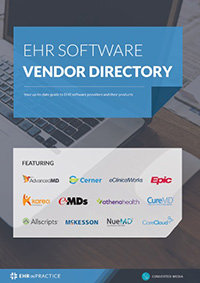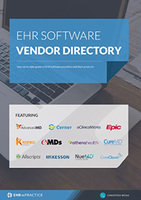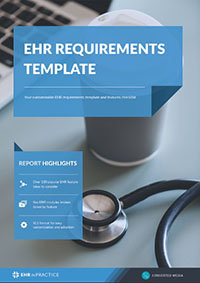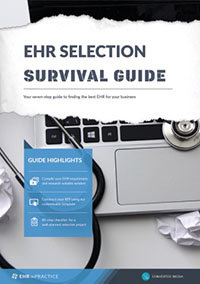Why your practice should choose a specialty EHR
The EHR market has developed to a point where a specialty practice can choose between a variety of general and specialty EHRs. This is due to the fact that the specialty EHR market’s development has been particularly pronounced and may represent the most active segment of the EHR market.
Given the options available in the EHR marketplace for specialty practices, what are the pros and cons of general EHRs against ones that are specific to your discipline? Furthermore, what should practices bear in mind when choosing between the two?
Does the EHR meet workflow requirements?
The primary concern with regard to EHR selection for any type of practice rests on ensuring that the software is a good fit for a practice’s workflow. One of the most effective ways to create an objective measure of whether a general EHR or specialty EHR would be a good fit from a workflow perspective is to conduct a workflow analysis. This analysis should consider how a particular system would affect how different end users use the system. A general EHR may not allow for flexibility in workflow by forcing users into engaging a specific set of steps to complete a task on the EHR.
For specialty practices, a rigid workflow can be problematic given the greater variety of tasks an end user may need to engage when using an EHR. Specialty EHRs, albeit offering a narrower range of functions, can allow greater flexibility in how tasks are completed due to their lack of extra functionality to suit a general market. From a productivity perspective a more flexible EHR from a workflow perspective can translate to less time wasted navigating the EHR to accomplish tasks.
Recommended reading: find specialty EHRs to suit your practice with our comprehensive EHR vendor directory.
However, for practices that may scale up in the future, a general EHR may be a more appropriate option, particularly if new service lines are added, in which case more generalized software may be needed. As such, a practice considering a general or specialty EHR should balance workflow requirements against how an EHR meets these particular needs.
What are my practice’s data entry requirements?
General EHRs often contain unnecessary data entry fields unrelated to the type of information a specialty practice will collect. Therefore, staff will be required to wade through various screens to find the required fields in which to input data. When inputting routine clinical data offer an efficient way to organize data entry into an EHR and cut through a number of redundancies. However, problems arise when the information a practice collects is more specific and cannot be plugged into a generic template.
This becomes particularly apparent when a specialty practice must document data collected from exams or testing involving data specific to a particular practice field. In this case, practices will often rely on a workaround to add the required data entry fields (a less-than-ideal option). Just as the case regarding workflow considerations, data entry considerations should also examine if an EHR fits a specialty practice’s needs. Unnecessary or missing data entry fields can hinder productivity, or worse, create a risk of errors.
As discussed above, a general EHR can assist practices whose service lines may be specialized at the time, but could become more generalized in the future. However, for a specialty practice that may just become larger and not add a diverse range of services a specialty EHR would likely be more suitable.
Specialty EHRs provide more tailored functionality that meets the unique needs of specialty practice. However this not to say that a general EHR could not work in a specialty practice. In fact it is quite common for a specialty to practice to use a general EHR. Given the variety of specialty products on the market, practices have the luxury to choose between a specialty and general EHR, whereas years ago this may not have been an option. In light of these choices, specialty practices should balance their workflow and data entry needs with the options available in an EHR.
Free white paper

EHR Vendor Directory
Get the most up-to-date directory of EHR software vendors. Find the best software for your practice.

Featured white papers
Related articles
-

EHR requirements and key features: your complete guide
Our extended guide to EHR requirements - everything you need to know and more on the subject
-

5 key stakeholders in your EHR selection
Learn about the individuals that, when consulted early and often, can make your EHR selection pro...
-

5 important areas of EHR training during implementation
Successful EHR implementation is not possible without crucial EHR training




